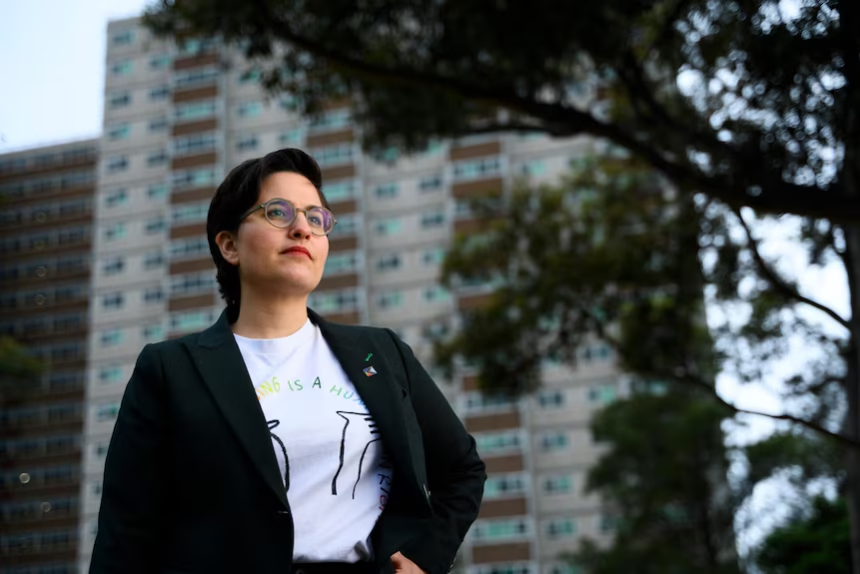Controversy Surrounds Proposed Affordable Housing Tower in Melbourne
A proposed 17-storey affordable housing tower in Greensborough, a suburb in Melbourne’s north-east, has ignited a significant debate over the intersection of community needs and corporate interests. The project, which aims to provide 211 one and two-bedroom apartments, has been fast-tracked for approval by the Victorian government under a scheme designed to expedite affordable housing development. However, revelations about the controlling entity behind the project have raised eyebrows among housing advocates and local residents alike.
The Players Involved
The charity behind the proposed development, Together Housing (Victoria), is reportedly controlled by Tetris Capital, a for-profit investment firm managing approximately $3.7 billion in assets. This connection has prompted scrutiny from various stakeholders, including the Victorian Liberals and the Greens, who are questioning the appropriateness of a profit-driven entity being involved in a sector traditionally dominated by not-for-profit organizations.
Gabrielle De Vietri, the Greens’ housing spokesperson, expressed her concerns, stating, “That a for-profit investment firm can register a community housing provider and then tap into hundreds of millions in public funds while getting a fast-tracked tick of approval from Labor should seriously raise eyebrows.” This sentiment reflects a growing unease about the increasing involvement of financial firms in the social housing market, a trend that has been gaining momentum in Australia.
The Context of Affordable Housing
Affordable housing, defined as housing charged at below-market rents, has become a pressing issue in Australia, particularly in urban areas where housing prices have skyrocketed. The federal government has allocated $206 million from its $10 billion Housing Australia Future Fund to support the Greensborough project, highlighting the urgent need for affordable housing solutions in the region.
However, the involvement of a for-profit entity in this space raises questions about the long-term sustainability and ethical implications of such arrangements. Historically, community housing in Victoria has been managed by long-established, faith-based, and not-for-profit organizations that prioritize the needs of low-income tenants.
Local Opposition and Concerns
The proposed tower has not only attracted attention due to its financial backing but also because of its height and the potential impact on the local community. The Banyule Council has voiced concerns regarding the tower’s height and the proposed reduction of car parking spaces, which could exacerbate traffic issues in the area. Local residents, including real estate agent Wayne Hutchinson, have expressed their opposition, citing a lack of consultation and the sheer scale of the project as significant issues.
Hutchinson acknowledged the need for more social housing but criticized the approach taken, stating, “The lack of consultation and the sheer size of this thing … they’ve literally circumnavigated the local planning requirements.” This sentiment is echoed by many community members who fear that the project may not adequately address the needs of the local population.
The Regulatory Landscape
Emeritus Professor David Hayward, who chaired a review of social housing regulation for the Victorian government, has noted a concerning trend of private sector-linked charity entities emerging in the not-for-profit housing sector. He expressed apprehension about the complex financial arrangements and substantial government subsidies that accompany these developments. “You put the whole thing together, it looks like a policy disaster in the making,” he warned.
The regulatory framework in Victoria stipulates that only registered not-for-profit organizations can provide social housing. However, the emergence of entities like Together Housing, which is closely linked to a for-profit firm, raises questions about compliance and the integrity of the system.
The Future of Social Housing
As the debate continues, the future of social housing in Victoria hangs in the balance. The involvement of private investors and superannuation funds in the sector has been framed as a necessary step to expedite the construction of affordable homes. Federal Housing Minister Claire O’Neil has emphasized that attracting new investors can yield greater returns on government investments, ultimately leading to more social and affordable homes being built.
However, critics argue that this model may compromise the core mission of social housing, which is to serve vulnerable populations. The financial model for the Greensborough development remains confidential, leaving many to wonder how profits will be generated in a sector that is legally required to operate as a charity.
Transparency and Accountability
The lack of transparency surrounding the financial arrangements and the long-term sustainability of the proposed housing has raised alarms among housing advocates. Questions remain about what will happen to the housing stock once the initial funding runs out. Both Together Housing and Housing Australia have been unable to provide clear answers, leading to concerns that taxpayer-subsidized housing could be sold off to meet investor demands.
De Vietri has called for greater transparency, stating, “There’s no clarity on what happens after the 25 years … do the social and affordable housing commitments continue?” This uncertainty is echoed by Richard Riordan, the shadow housing minister, who has stressed the need for transparency in private sector partnerships.
Conclusion
The proposed Greensborough tower serves as a microcosm of the broader challenges facing the affordable housing sector in Australia. As financial firms increasingly enter the social housing market, the balance between profit and community needs becomes ever more precarious. The ongoing debate highlights the necessity for transparency, accountability, and a commitment to prioritizing the welfare of vulnerable populations in housing policy. As stakeholders continue to grapple with these issues, the future of affordable housing in Victoria remains uncertain, underscoring the need for a thoughtful and inclusive approach to development.











